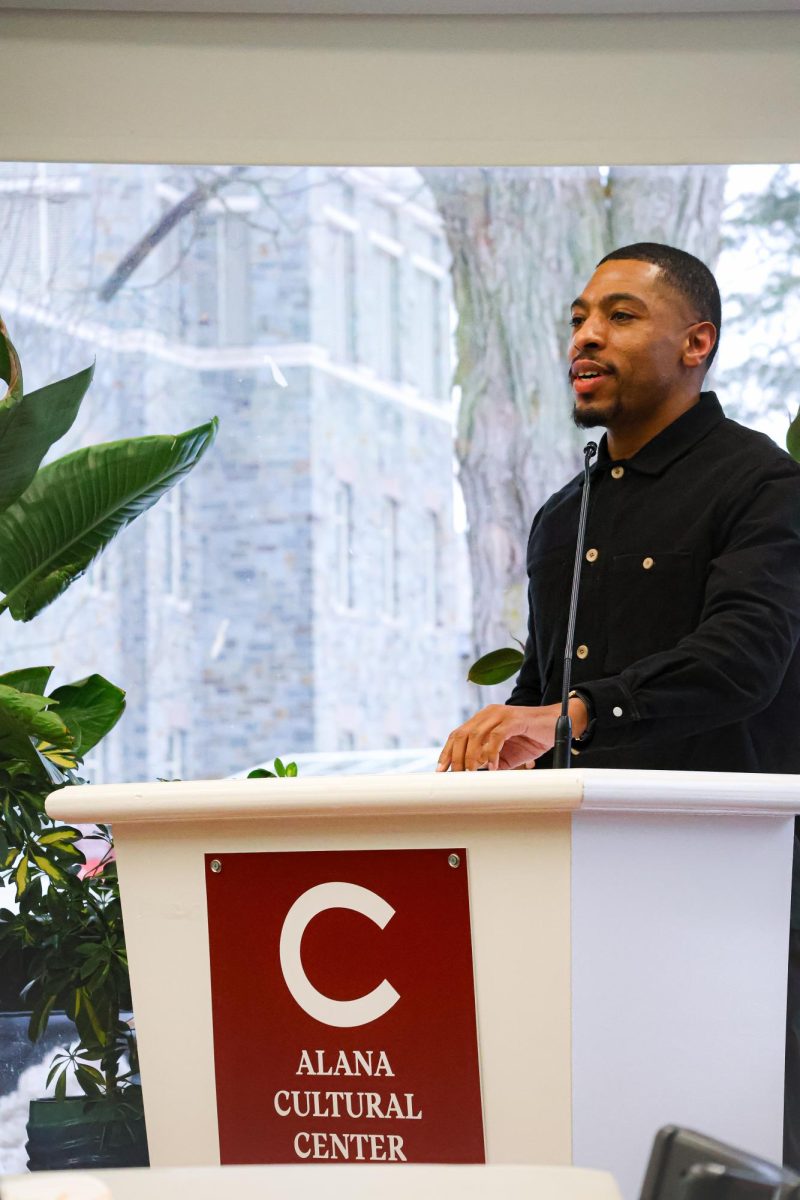Colgate University continued its 2024 Road to the White House series by bringing Karl Rove, President George W. Bush’s former senior advisor and deputy chief of staff, to campus on Monday, Sept. 16. Rove spoke with Chad Sparber — director of the Lampert Institute, W. Bradford Wiley chair in international economics and professor of economics — to a crowd assembled in the Memorial Chapel. Rove entered the stage performing an impression of former President Donald Trump and spent the discussion telling many jokes and anecdotes from his time in politics to give insight into how elections evolve throughout their course.
Senior Sawyer Brown attended the lecture and was excited about the opportunity to hear from Rove.
“Colgate’s election series is an amazing way for students to get informed from some of the nation’s most prominent political figures,” Brown said. “The university has done a great job at keeping the discussions well-moderated, bipartisan and educational for students that want to learn more about our 2024 presidential election.”
Rove, who worked on over 75 Republican campaigns, discussed his favored strategy of “microtargeting,” which uses data collected from commercial sources to inform race prediction models. Rove discussed how certain unassuming data points could reveal which way someone would vote.
“For example, if in 2004 you drove a Volvo, you’re voting for John Kerry,” Rove said. “If you drove a Ford F150? You’re voting for Bush.”
After Rove explained his experience working on campaigns, Sparber propelled the conversation to insights on the current election season. Referencing a statistic published in the New York Times that 18% of voters are undecided, Sparber asked Rove for further insight on this number.
“Are they people who are literally struggling to choose between the two, or are they people who are struggling with whether or not to show up?” Sparber asked.
“My gut tells me the biggest chunk are the low prevention voters who say, ‘You know what, I don’t pay attention to politics much,’” Rove responded.
Rove and Sparber continued on to discuss the specific strengths and weaknesses of each candidate in the election. On the notion that Vice President Kamala Harris has switched her public opinion too much, Rove described himself as contrarian.
“I don’t think she has a problem changing her opinions,” Rove said. “First of all, the people up-for-grabs in this election, the swing voters, they despise all politicians. They think every politician changes their opinion to their advantage.”
Rove also discussed the criticism that Harris has few well-defined stances in her platform. In one of his many comedic moments of the night, Rove supported Harris’s efforts to let the public get distracted by her opponent’s blunders rather than allowing them to tear apart any stance she puts out.
“If you’re worried, you want to chew up time — you want him to go out there and talk,” Rove said. “You want to learn new things about her, and she’s got time to tell us those new things, but you don’t want so much time that you learn things that she doesn’t want you to learn about. And so the less time for that to happen, and the more his attention is on the critical issues, like spilling his opinion about Taylor Swift, the better off she is.”
Sparber continued the discussion of public perceptions by discussing the differing responses to Biden and Trump’s debate performances. Sparber referenced polling data from the most recent debate to compare the response to Biden to that of Trump’s performance.
“Most recently, Trump seems to have also lost touch and is not with reality, and his popularity rating barely moved the needle,” Sparber said. “Why is there less movement in the Republican Party?”
In response, Rove gave insight into how he thought numbers would change once ballots began circulating in the nation.
“I will bet you a hundred dollars when we start looking at questions of, ‘Do we think he’s up to the job? Do we think she’s up to the job? Who has a plan for the future? Who cares about people like me? Who would be a strong, effective president?’ His numbers are going to [waver] a little bit, and hers are going to get a little bit better, because those things work their way through and then express themselves,” Rove said.
Brown appreciated how both personal experience and historical knowledge informed Rove’s perspective.
“Rove brought an accomplished and insightful perspective to the election series thanks to his extensive experience in the White House and the broader American political system,” Brown said. “This experience in combination with his vast knowledge of American history provided students with an outlook on the election that drew on past, present and what is at stake.”
Sparber closed the talk by mentioning the topics his Lampert students had mentioned they had hope for, including increased youth civic engagement, improvements in climate change and the advantage of being in the United States. Rove focused on this last theme to close out his remarks.
“Don’t bet against us. Bet against the United States of America, what we can do and how we can do it at your own risk,” Rove said.
















